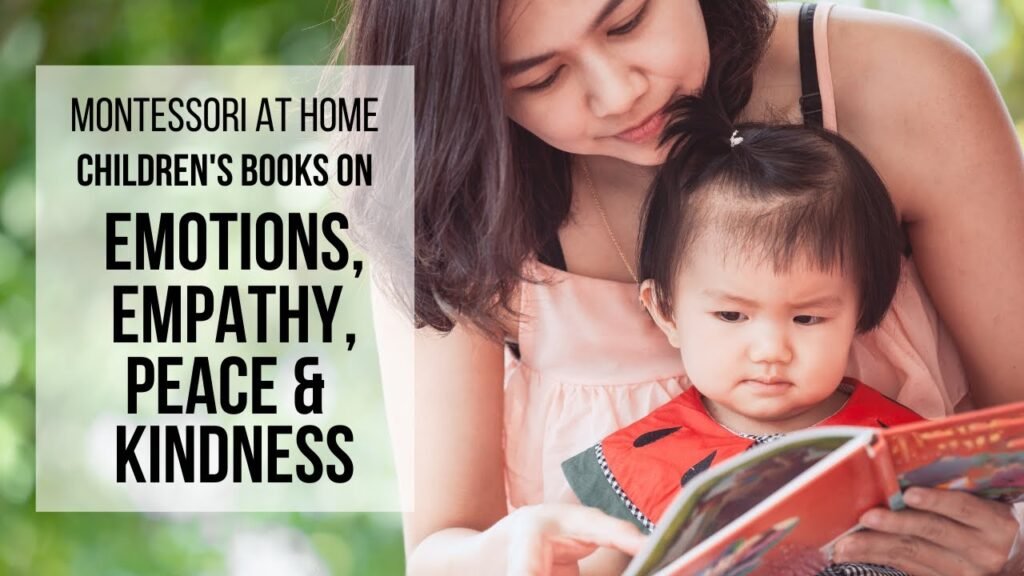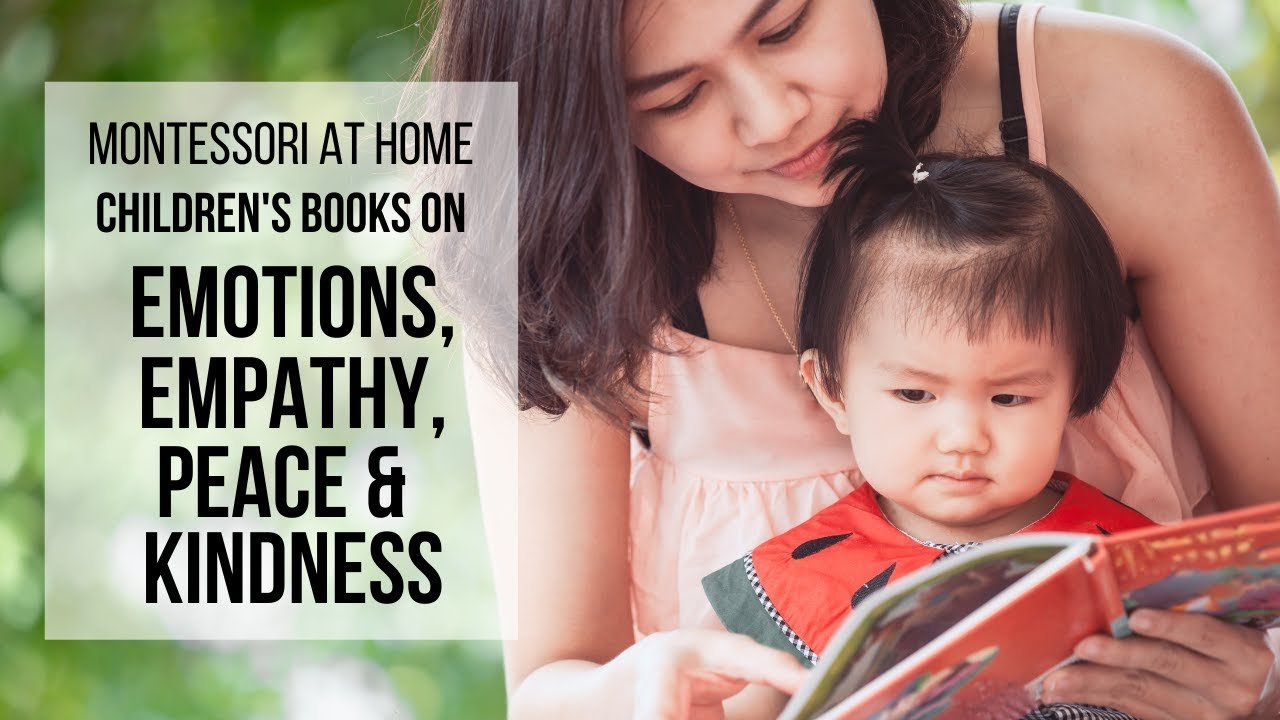Hi there! In this video by Hapa Family, they discuss an array of books focused on emotions, empathy, peace, and kindness – perfect for incorporating Montessori principles at home. Ashley, a mom of two girls, shares her favorite book recommendations for children. Among the recommended titles are “Making Faces,” “Lots of Feelings,” “The Way I Feel,” “All About Feelings,” and “Hey Little Ant.” These books offer a great way to teach children about emotions and empathy, making them valuable additions to any family’s home library.
If you’re looking to explore different books that help children understand emotions and kindness, this video by Hapa Family is a must-watch. Discover a selection of books that appeal to both toddlers and preschoolers, with engaging stories and realistic portrayals of feelings. Whether it’s “The Way I Feel” or “All About Feelings,” these books offer a wonderful way to introduce young children to the world of empathy and peace through reading. Get inspired by Ashley’s recommendations and create a nurturing environment for learning at home with these beautiful books.

Introduction
As a parent, you understand the importance of fostering emotional intelligence, empathy, peace, and kindness in your children. These are qualities that not only shape their character but also set the foundation for healthy relationships and positive interactions with the world around them. In a world filled with various distractions and influences, nurturing these fundamental values becomes paramount, and what better way to do so than through the power of books? In this Montessori-inspired journey at home, Ashley, a mom of two adorable girls, shares her passion for reading and recommends a curated selection of books that delve into emotions, empathy, peace, and kindness.
Recommended Books
When it comes to teaching children about emotions, feelings, empathy, peace, and kindness, there are several standout books that can capture their interest and engage them in meaningful discussions. From board books designed for the youngest readers to poetic rhyming texts that resonate with older children, each book offers a unique perspective on these essential themes. Some noteworthy recommendations include “Making Faces,” “Lots of Feelings,” “The Way I Feel,” “All About Feelings,” and “Hey Little Ant.” Additionally, series like “A Kid’s Book About” and “What Should Darla Do” offer a fresh take on exploring complex emotions and ethical decision-making in a child-friendly format.
Focus Areas
Emotions, feelings, empathy, peace, and kindness serve as the central focus areas of the recommended books. By addressing these key aspects of human interaction and self-awareness, children can develop a deeper understanding of their emotions, learn to empathize with others, cultivate a sense of peace, and embody kindness in their everyday interactions.
Teaching Tools
Utilizing Montessori principles in your home can provide a structured and engaging learning environment for children to explore emotions and empathy. By incorporating hands-on activities, open-ended discussions, and materials that promote sensory exploration, children can grasp complex concepts in a tangible and meaningful way.
Benefits
By immersing children in literature that emphasizes emotional intelligence, empathy, peace, and kindness, parents can witness a transformation in their children’s behavior and outlook on the world. These books not only enhance cognitive development but also instill values that promote positive social interactions, conflict resolution, and a sense of compassion towards others.
Age Appropriateness
The recommended books cater to a wide range of age groups, from toddlers to elementary school-aged children. Each book is designed to adapt to different developmental stages, ensuring that children of varying ages can benefit from the content presented. Whether it’s introducing basic emotions to toddlers or exploring nuanced feelings with older children, these books offer a versatile and inclusive approach to emotional literacy.
Interactive Elements
Engaging children in discussions about emotions, feelings, empathy, peace, and kindness can spark curiosity and encourage active participation. By incorporating interactive exercises, such as role-playing scenarios or creative expression activities, parents can deepen their children’s understanding of these concepts and foster meaningful connections between words and actions.
Engagement Strategies
Storytelling and role-playing are powerful tools for captivating children’s attention and facilitating meaningful learning experiences. By narrating stories with animated voices, acting out emotions, and encouraging children to express their own thoughts and feelings, parents can create a dynamic and engaging atmosphere that promotes open communication and emotional exploration.
Additional Resources
In addition to the recommended books, online platforms and communities dedicated to Montessori-inspired parenting can offer valuable resources and support for parents looking to incorporate these teachings into their daily routines. By accessing a network of like-minded individuals, parents can exchange ideas, seek advice, and collaborate on creating enriching environments that prioritize emotional growth and social well-being.
Conclusion
In conclusion, the impact of Montessori principles on children’s emotional development cannot be understated. By immersing children in literature that focuses on emotions, empathy, peace, and kindness, parents can lay the groundwork for a more compassionate and emotionally intelligent generation. The long-term benefits of fostering empathy and peace within family dynamics extend far beyond childhood, shaping children into empathetic, understanding, and kind individuals who are equipped to navigate the complexities of human emotions with grace and resilience. Embrace the power of storytelling, engage in open dialogues, and instill values of empathy and kindness in your children to create a harmonious and nurturing environment that empowers them to thrive emotionally and socially.

